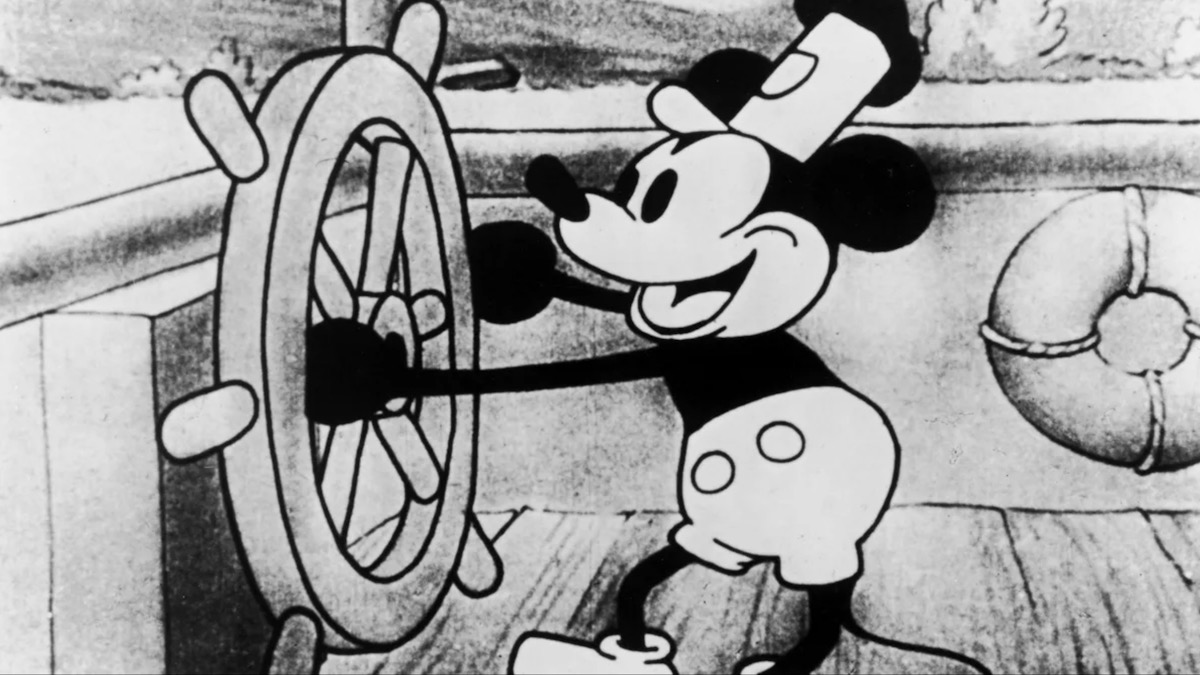Time finally caught up with Disney in January of 2024. After decades of hard-fought legal battles, Mickey Mouse finally entered the public domain.
Or at least, he sort of did. Put simply, the version of Mickey Mouse introduced in the 1928 animated short Steamboat Willie now belongs to the people, but the fine print gets a little murky. While enthusiastic opportunists are already gearing up to make as much postmodern Mickey content as the market can soak up, Disney’s attorneys have made it clear that they’ll be happy to take action the second that legal lines are crossed.
With that in mind, you’ll want to know what you can and can’t do before you borrow money from your parents to make your edgy “Fall of the Mouse of Usher” series.
Can do: Show the Steamboat Willie version of Mickey Mouse sloshed on vodka gimlets, singing “Mack the Knife” in a seedy club
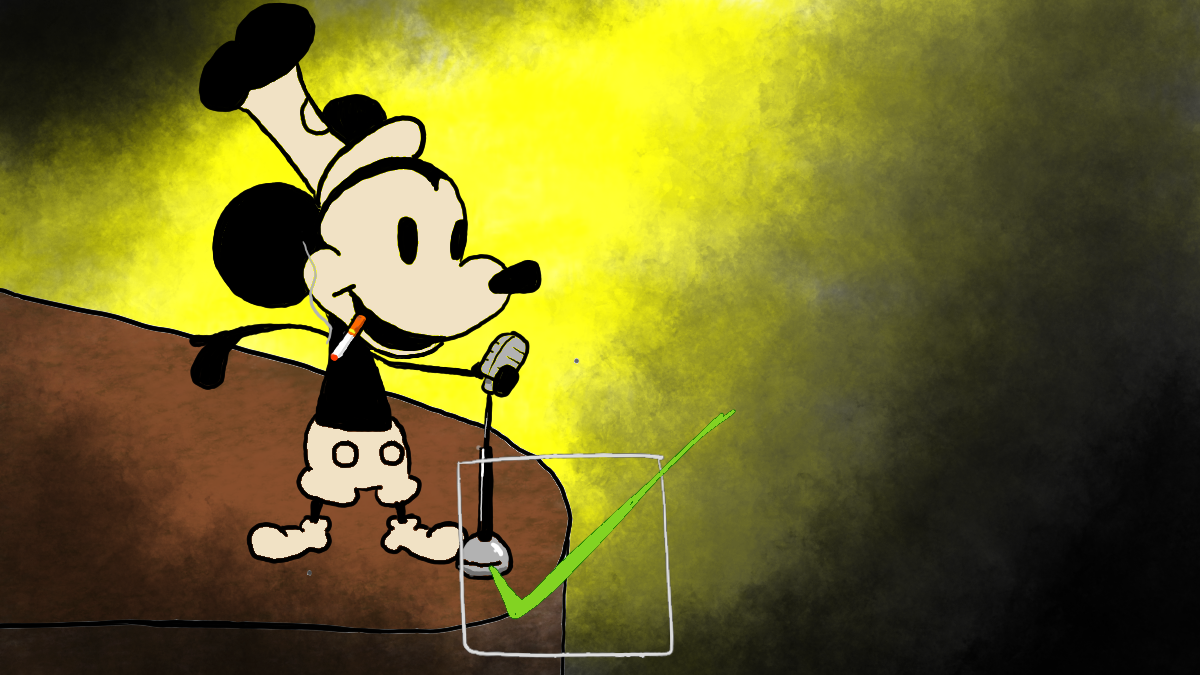
First, the basics. Just a few months ago, making a cartoon of 1920s-era Mickey Mouse singing “Mack the Knife” would’ve had Disney’s attorneys at your front door faster than the Domino’s guy. Now, you could – if you wanted to – make a whole music video in which Mickey musically relays the dangers of Europeans with cutlery.
That’s because, along with Steamboat Willie, the 1928 musical number-turned-jazz standard, “Mack the Knife,” composed by Kurt Weill with lyrics by Bertolt Brecht, also entered the public domain in 2024. Other stuff that you could have Mickey do in your home movies thanks to recently lapsed rights: Sing “Makin’ Whoopee,” read All Quiet on the Western Front cover to cover, and reenact a French silent film about the burning of Joan of Arc.
Can’t do: Show any other version of Mickey Mouse sloshed on vodka gimlets, singing “Mack the Knife” in a seedy club
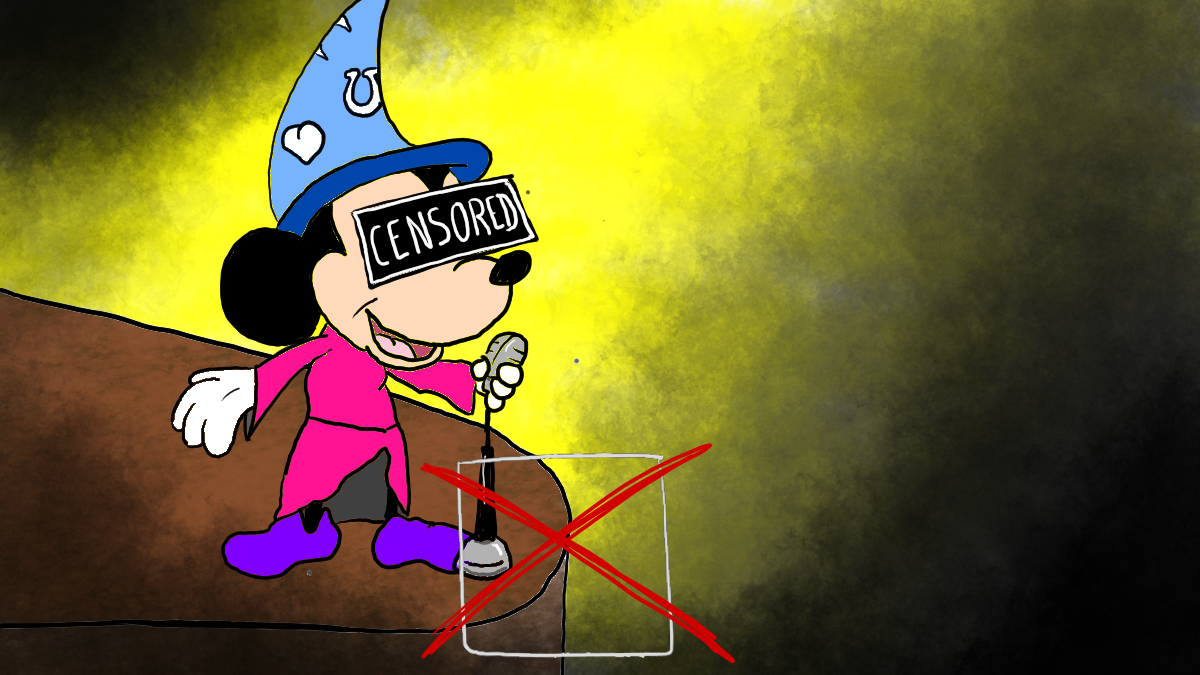
This is where things get tricky. While the specific iteration of Mickey Mouse portrayed in the animated short Steamboat Willie is fair game, creatively speaking, using almost any other version of the character will still get you steamrolled by the most magical legal team on Earth.
The argument that Disney has spent a lot of money defending is that Mickey Mouse isn’t just a single, nigh-on century-old character. He’s a spectrum of interpretations, each one unique – actionably so. You’re technically protected if you show the Steamboat Willie version of Mickey Mouse dancing on a burning American flag. The version from Fantasia? Enjoy your C&D.
Can do: Make gimmicky Mickey Mouse horror movies
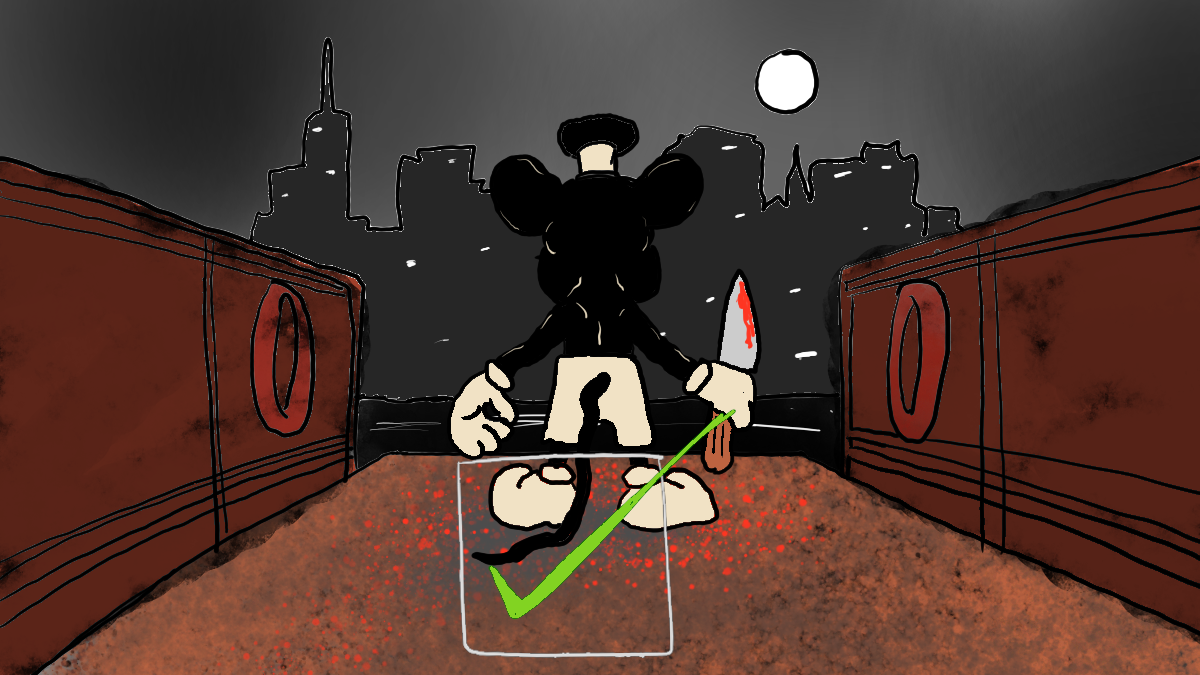
In 2022, A.A. Milne’s Winnie-The-Pooh entered the public domain. Almost immediately, Winnie the Pooh: Blood and Honey entered pre-production, pupating into a $100,000 indie slasher that was released the following year, making back more than 50 times its budget.
The parallels were obvious when a pair of Mickey Mouse-based horror films were announced in the first few hours of 2023. Now you, your buddy Kyle, and whoever’s up for holding the boom mic can make your own Steamboat Willie-inspired horror films. At least two teams already are, with Mickey Mouse Trap and a second, yet-untitled thriller already announced.
Can’t do: Make gimmicky horror movie featuring any Mickey Mouse-adjacent characters
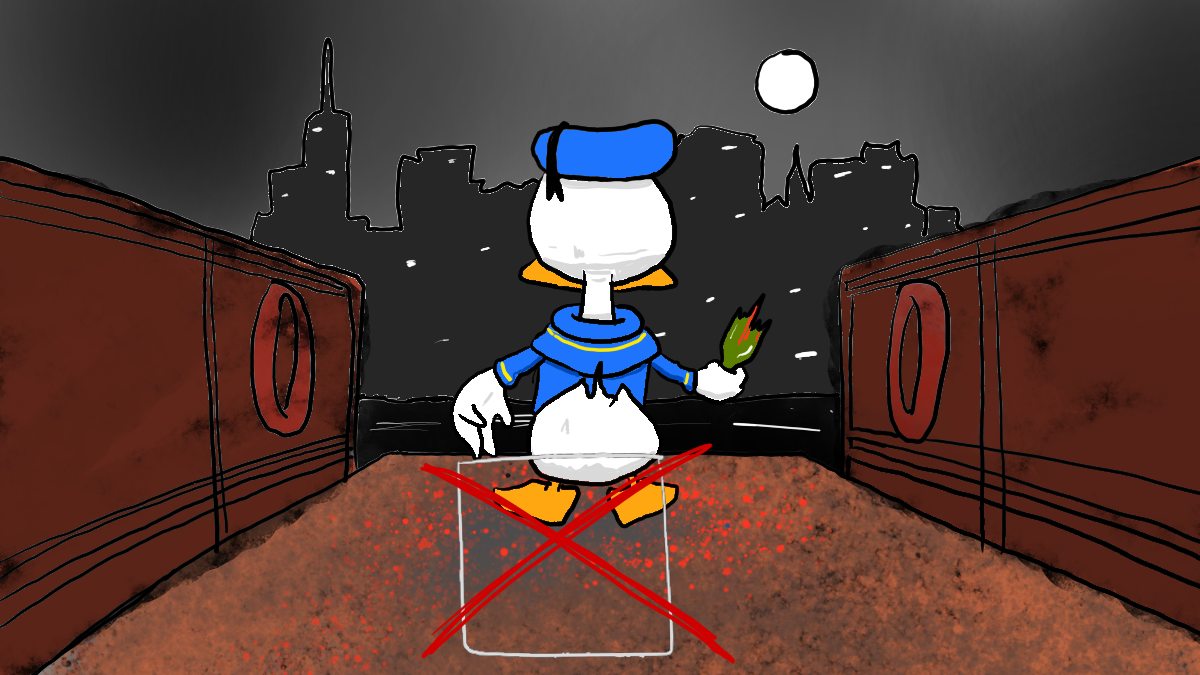
While Mickey and Minnie Mouse are both up for grabs in their larval, pre-Great Depression-era forms, and can freely be depicted running as many unwary campers over as many table saws as you can imagine, showing Donald Duck laughing and clapping in the corner would be taking things too far. Legally speaking.
That’s because, again, the only aspect of Mickey and Minnie Mouse that’s entered the public domain is Steamboat Willie (along with two lesser-known cartoon shorts, The Gallopin’ Gaucho and a silent cut of Plane Crazy). Ancillary characters like Goofy, Pluto, and Walt Disney’s cryogenically frozen head won’t belong to the public until 2028, 2026, and whenever the people take back the tunnels under Disney World, respectively.
Can do: Draw the Steamboat Willie version of Mickey Mouse kissing Frankenstein’s Monster
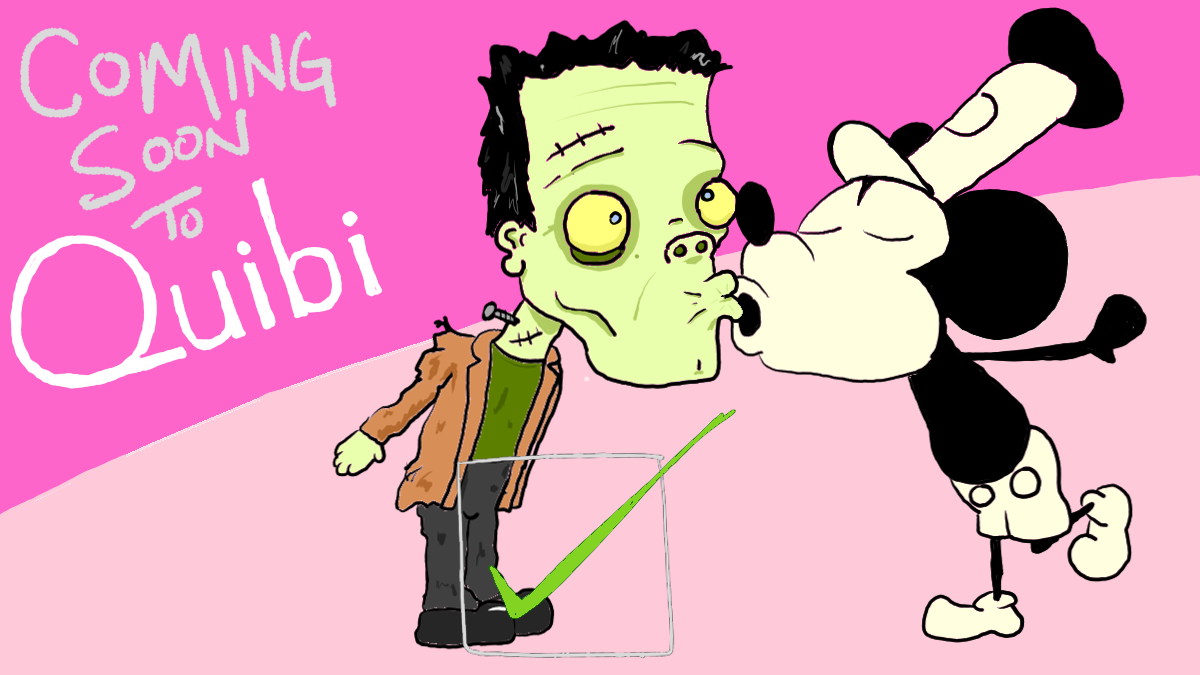
This one goes out to a very specific subsection of society. You know what you need, and now you can have it: All the homemade images you can draw of Mickey Mouse from the 1920s kissing fellow public domain inhabitant Frankenstein’s Monster right on the mouth.
Can’t do: Title that drawing “Walt Disney Studios presents: Mickey Mouse kissing Frankenstein’s Monster”
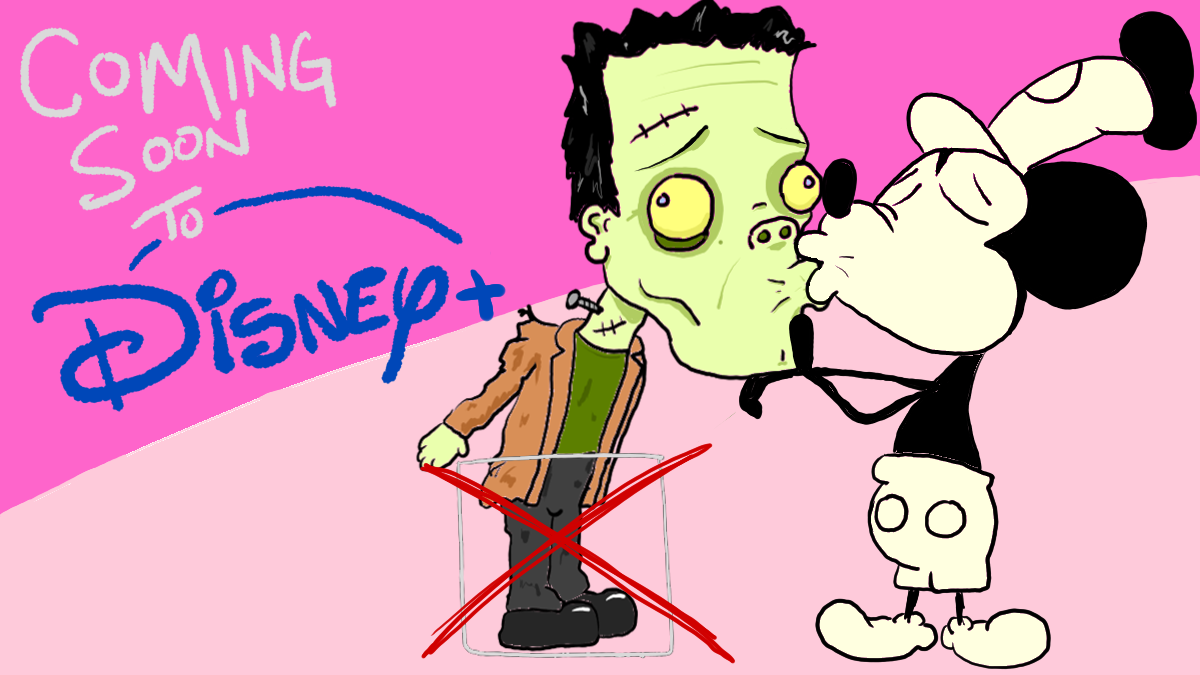
Now, here’s where it gets extra tricky. One of the stipulations of using Mickey Mouse without incurring the wrath of Walt Disney Studios: You can’t make it seem like Disney has anything to do with what you’ve created. Anything that’s seen as damaging to the Disney brand, or as misrepresenting their interests – I.E., putting Mickey Mouse in a commercial for your recreational weed dispensary, and having him say “Hoo, boy, Bob Iger says you should get Bob High-ger!” – will absolutely get you sued.

